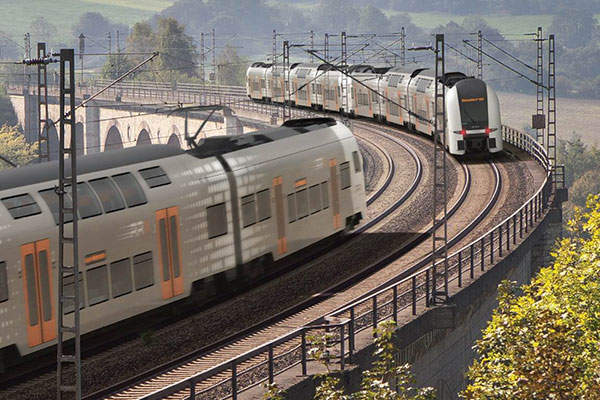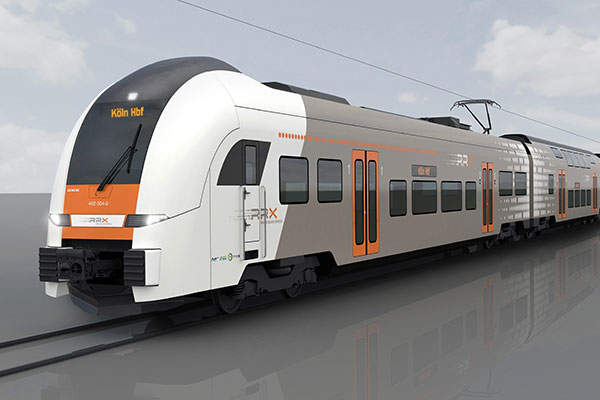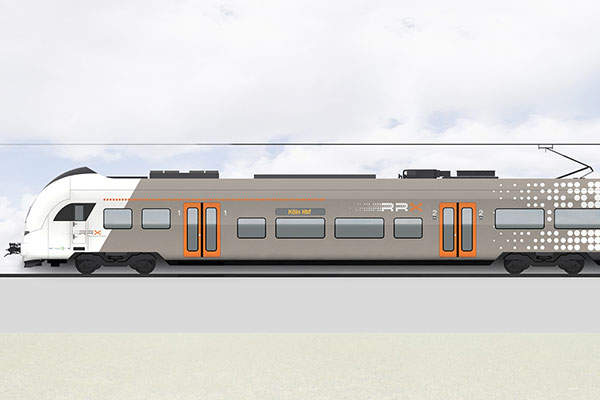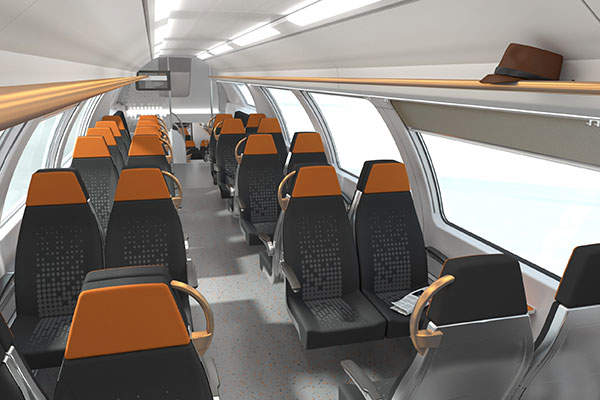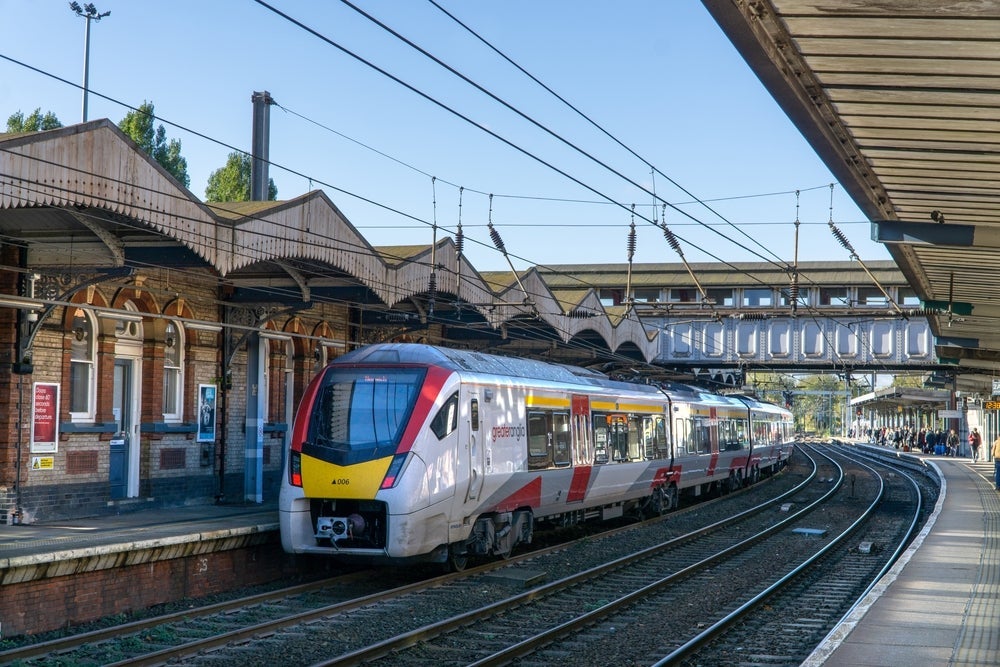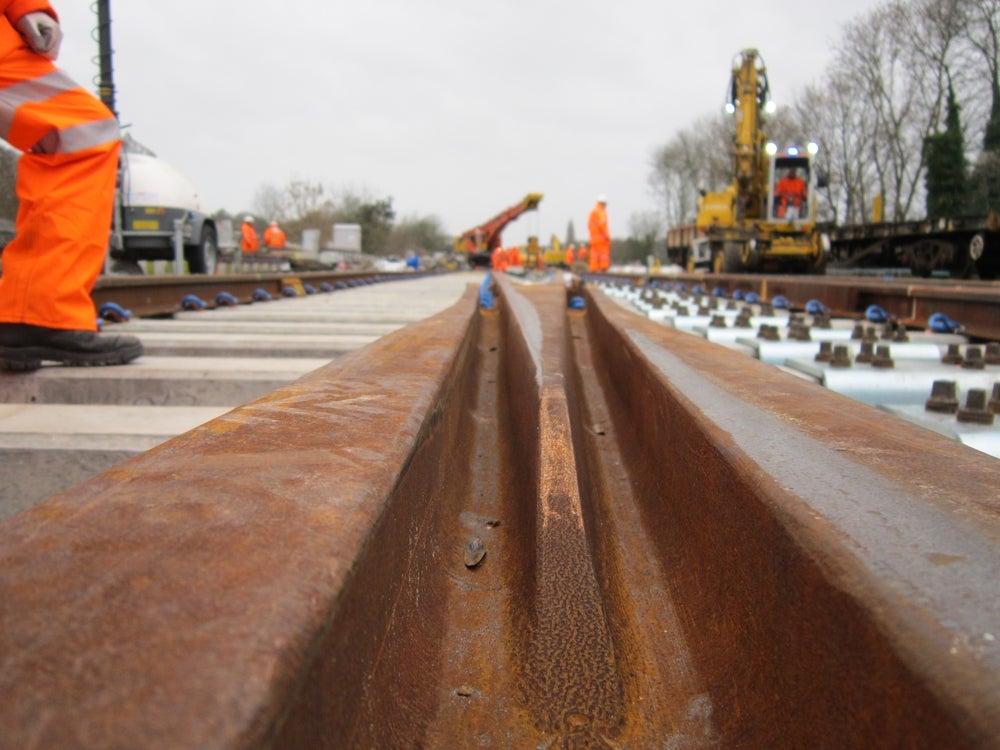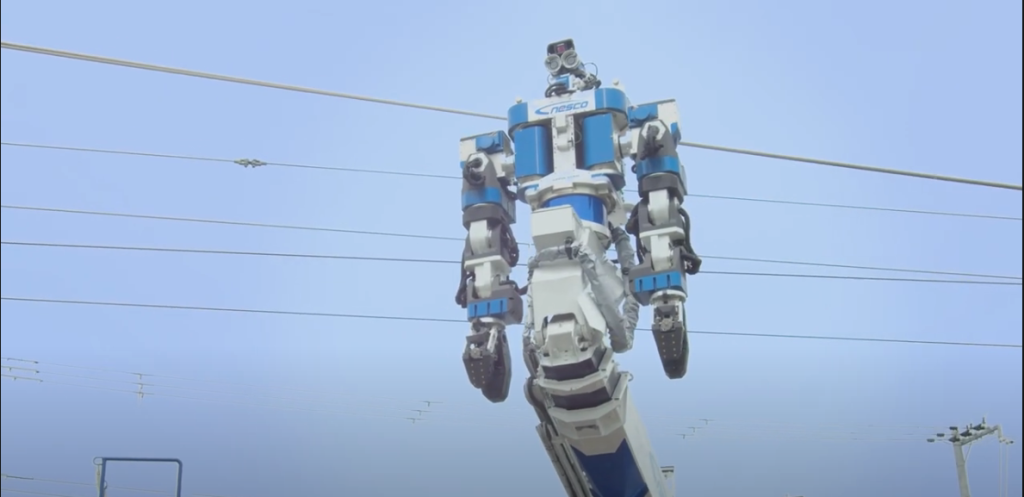Rhine-Ruhr Express is a major transportation project being developed in North Rhine-Westphalia region of Germany. It is considered as the region’s ‘project of the century’ and anticipated to ease the worsening traffic conditions.
The project will involve the construction of six lines, which will be introduced in phases over the next ten years at intervals of six months each. It is expected to fill the gap between long-distance passenger rail services and the Regional Express (RE).
The Rhine-Ruhr Express network will be operated by German railway operator Deutsche Bahn. The RE 11 line from Düsseldorf to Kassel commenced operations in December 2018.
Project background
The Rhine-Ruhr region in North Rhine-Westphalia state is one of the biggest metropolitan areas in Europe. Public transport networks and rail connections on the route between Cologne and Dortmund are heavily overloaded.
With the introduction of RRX, approximately 31,000 passenger journeys a day are expected to operate with a significant amount of car traffic switching to public transport.
The RRX project implements a new method of bidding through the NRW RRX Model, wherein the rail operators will initially bid for transport services, and then procure vehicles. The joint venture of Rhine-Ruhr (VRR), Rhineland (NVR), Westphalia-Lippe (NWL), Rhineland Palatinate North (SPNV-Nord), and North Hesse (NVV) was awarded the bid for operating the RRX services. VRR will be responsible for leasing the fleet to rail operators.
Rhine-Ruhr Express project details
The project is divided into six zoning areas (PFB 1-6). The first area will include the upgrade of a two-track rail line between Cologne Mülheim and Dusseldorf rice timber into four tracks.
The second zoning area will extend from Dusseldorf-Hellerhof to Dusseldorf Wehrhahn, while the third area includes the expansion of the line between Dusseldorf and Duisburg.
The fourth zone will extend from Mülheim Mülheim (Ruhr)-Styrum to Mülheim (Ruhr)-Heißen, whereas the fifth will be from Essen to Bochum. The proposed sixth zoning area will extend east and west of the Dortmund main station to the train depot at Spähenfelde.
The project also includes the reconstruction of the stations between Dortmund and Cologne stations along with various access routes along the lines. A tunnel line between Oberhausen and Dusseldorf will also be modernised.
The renovation of 53 stations at North Rhine-Westphalia is expected to be completed by 2025.
Rhine-Ruhr Express route details
The six lines of the RRX project will connect major cities, including Köln (Cologne), Leverkusen, Dusseldorf, Duisburg, Bochum, Dortmund, Bielefeld, and Koblenz in Rhineland-Palatinate.
The Ringsted-Fehmarn rail link project was initiated by Denmark and Germany to connect the fixed link across the Fehmarnbelt by 2021.
RRX started its transitional operations on five lines, namely RE 1, RE 4, RE 5, RE 6, and RE 11, beginning from 2018. RE 1 runs from Aachen to Hamm, RE 4 from Aachen to Dortmund, RE 5 from Koblenz to Wesel, RE 6 from Cologne / Bonn (airport) to Minden, and RE 11 from Düsseldorf to Kassel.
RE 5 and RE 6 will begin operations in June and December 2019 respectively, while RE 1 and RE 4 will commence in June and December 2020.
Regional express trains currently serve these five lines, with the core route running between Cologne-Deutz and Dortmund.
Rolling stock for the Rhine-Ruhr Express
A combination of single and double-decker Siemens Desiro HC electric multiple units (EMU) will run on the RRX. Each train will be 105m-long and contain four cars offering a seating capacity of 400. Two units can be combined to form an eight-car express with more than 800 seats.
The first RRX trains are expected to run at a top speed of 160km/h.
The first and last (end and driving trailer) cars of each multiple unit will have one passenger deck, while the two middle cars will be double-deckers. The driver train is expected to have an efficiency of more than 90%.
The passenger decks will feature 36 leather seats fitted with power outlets and reading lights. The air-conditioned fleet will include WLAN system throughout the train, information systems, CCTV, and non-slip floors. The bogies will be air-sprung to provide passenger comfort while ensuring lower noise levels in the compartments.
Siemens also built a maintenance workshop in Dortmund-Eving, where up to four trains can be serviced simultaneously. With a workforce of 75 employees, the Rail Service Centre has been providing digitalised service and maintenance for 82 electric RXX Desiro HC multiple-unit trains for 32 years.
The workshop was inaugurated in September 2018 and features a three-storey warehouse and staff facility, six-track workshop building, a gatehouse building, advanced vehicle inspection system (AVI), outdoor train washing facility, sidings, and an underfloor wheel lathe.
Financing of Rhine-Ruhr Express project
The Rhine-Ruhr Express project is financed by the federal government, the state of North Rhine-Westphalia and Deutsche Bahn.
The European Investment Bank is providing €450m ($483m) in funds for the purchase of rolling stock.
Contractors involved with Rhine-Ruhr express
Siemens was awarded a €1.7bn ($1.82bn) contract in March 2015 for the supply of 82 Desiro HC EMUs. The contract also included providing maintenance services for the EMUs for a period of 32 years.
ZPP German Engineering was contracted for project planning services, while Hering Group built temporary platforms during construction.
DB Netz, DB Station & Service and DB Energie were engaged to provide infrastructure for the project. DB ProjektBau is responsible for planning and implementation of the construction works.
A consortium of Alstom Transport and koda Transportation was contracted for supply and maintenance of double-deck regional trains.
Heuking Kühn Lüer Wojtek and North Rhine-Westphalia transport providers developed the bidding concept for the selection of trains.
Schüßler Plan prepared the planning applications for section three between Düsseldorf-Zoo and the Duisburg Kaiserberg branch station.

